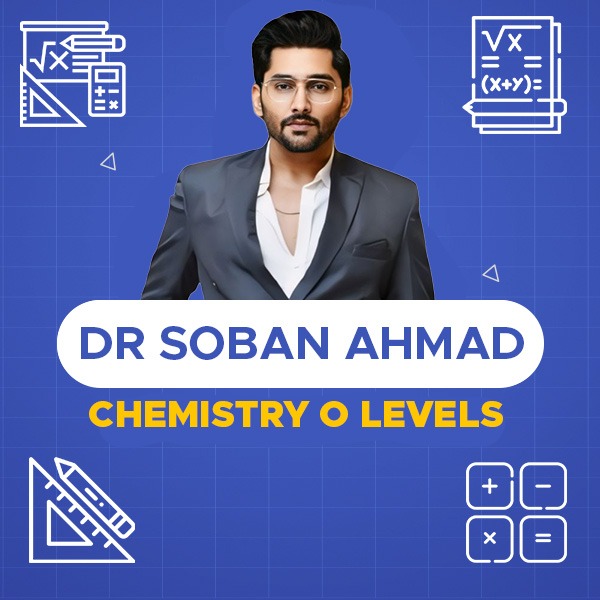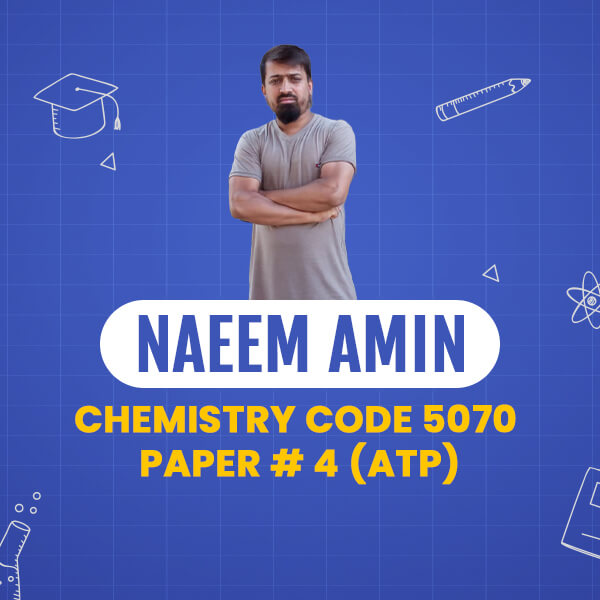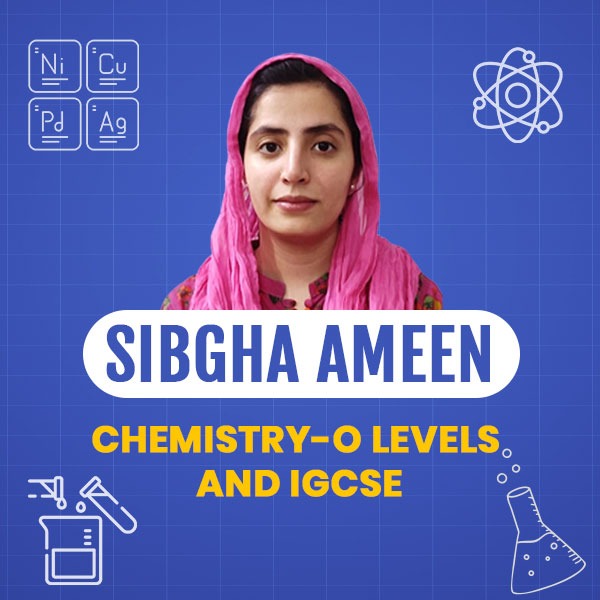
 Lectures: 15 Topics , 26 Sub Topics
Lectures: 15 Topics , 26 Sub Topics Duration:
Duration:
 Language: English
Language: English Enrolled:
0
Students
Enrolled:
0
Students Access on Mobile and TV
Access on Mobile and TV Premium content
Premium content
Chemistry-O Levels IGCSE and GCSE
O Levels
What will i learn?
- The course would help students to develop an understanding of scientific and problem solving skills . This course gives u the opportunity to experience chemistry within the context of ur general education Regular practice of past papers will make students well aware of the type of questions asked in exam so helpfull to make their grades Ur knowledge about fundaments in chemistry will b secured and will help u not in A levels further but forever in future
O Level Chemistry is an essential secondary education course designed to introduce students to the fundamental principles of chemistry. It aims to build a solid foundation in chemical concepts and develop practical skills through laboratory work. Here’s an overview of the key components of the O Level Chemistry course:
Core Topics
The course covers a comprehensive range of topics, including:
Experimental Chemistry
- Techniques for safe and accurate laboratory work
- Methods for separating mixtures and purifying substances
The Particulate Nature of Matter
- States of matter and changes between them
- Atomic theory and the structure of atoms
Elements, Compounds, and Mixtures
- Differences between elements, compounds, and mixtures
- Chemical symbols, formulae, and equations
Stoichiometry
- Mole concept and Avogadro’s number
- Calculations involving reacting masses, volumes, and concentrations
Electricity and Chemistry
- Electrolysis and its applications
- Redox reactions and electrochemical cells
Chemical Bonding
- Ionic, covalent, and metallic bonding
- Properties of substances based on their bonding
States of Matter
- Gases, liquids, and solids
- Ideal gas laws and kinetic theory
Chemical Energetics
- Exothermic and endothermic reactions
- Energy changes and enthalpy
Chemical Reactions
- Types of reactions: synthesis, decomposition, single and double displacement
- Factors affecting the rate of reaction
Acids, Bases, and Salts
- Properties of acids and bases, pH scale
- Preparation and reactions of salts
The Periodic Table
- Organization of elements and periodic trends
- Group properties and transition metals
Metals
- Properties of metals and their extraction
- Reactivity series and corrosion
Air and Water
- Composition of air and pollution
- Water treatment and the importance of water
Sulfur and Carbonates
- Industrial processes involving sulfur
- Properties and uses of carbonates
- Chemistry of sulphur
- Criteria of purity
- Methods of purification
- Structure of atom
- Trends of periodic table
- Stoichiometric calculations
- The concept of mole
- Structure of matter
- Types of bonding in simple and macromolecules
- Electrochemistry
- Energetics of a reaction
- Energy transfer
- Physical and chemical changes and reversible reactions
- Speed of reaction
- Speed of reaction
- Chracteristic properties of acids and bases
- Nature of oxides and salts preparation
- properties of metals
- extraction of metals and its uses
- Reactivity series
- Nitrogen and fertilizers
- Carbondioxide and methane
- states of matter
- chemistry of hydrocarbons
- Alcohols, carboxylic acids
- Chemistry of polymers
| Title | Lectures | Price |
|---|---|---|
| Inquiry Based Session-1 lesson | 1 | 11$ |
| Regular Package/ 4 lesson | 4 | 44$ |
| Standard Package/8 Lesson | 8 | 74$ |
| Premium Package/12 | 12 | 105$ |
| Fast Track/16 Lesson | 16 | 132$ |
| Regular Group | 16 | $ |
| Students must have an understanding the fundamentals of chemistry. Students of IGCSEs chemistry from Cambridge and E excel board can avail the opportunity of the course Those who are interested in doing past papers of all components should have covered the course already |
Other Related Courses

Chemistry-(GCSE 5070) Paper # 4 (ATP)
Updated Mon, 15-Apr-2024


Reviews
0
0 Ratings
Detailed Rating
1 Star
0%
2 Star
0%
3 Star
0%
4 Star
0%
5 Star
0%
About The Instructor

Instructor:Dr. Soban Ahmad
Enrolled:
0
Students
Courses:4 Courses
Review:  (0)
(0)
 (0)
(0)
0 Comments
Show More